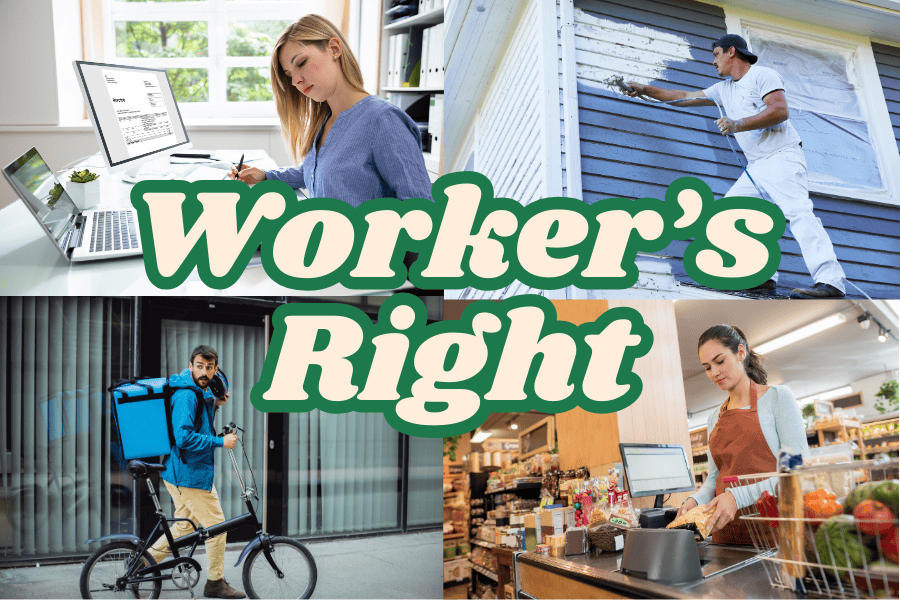Quick Summary and Important Takeaways
As a newcomer to Sydney, understanding your workplace rights is essential for a successful career transition. Here’s what you need to know right away:
Equal Rights for All Workers
Your visa status does not affect your workplace rights. Whether you’re on a temporary visa or permanent residency, you have the same protections as Australian citizens under the Fair Work Act 2009 and Work Health and Safety Act 2011.
Key Warning Signs of Exploitation
Be alert to these common red flags:
- Threats about your visa status
- Being paid below minimum wage
- Cash-only payments without proper documentation
- Unpaid “training” periods
- Having your passport or documents held by the employer
- Being asked to pay money to secure employment
Getting Help
If you believe your rights are being violated:
- Document everything (hours, pay, incidents)
- Contact the Fair Work Ombudsman on 13 13 94
- Use the Assurance Protocol (your visa won’t be affected)
IMPORTANT: Your employer cannot cancel your visa, even if you’ve breached visa conditions. Only Home Affairs has this authority.
For those who want comprehensive information about workplace rights in Australia, please continue reading the detailed guide below and visit the government websites provided.
Comprehensive Guide to Work Rights in Australia
Act and Regulation
In NSW, workers (employees, in relation to their employment) are protected by the Fair Work Act 2009 and Work Health and Safety Act 2011.
IMPORTANT: Visa holders and migrant workers have the same workplace entitlements and protections as all other employees in Australia, regardless of their migration status. Employers engaging foreign workers must ensure that they comply with both Australian workplace laws and immigration laws.
Refer to Visa Protections – The Assurance Protocol: www.fairwork.gov.au/find-help-for/visa-holders-migrants/visa-protections-the-assurance-protocol
IMPORTANT: Do not tolerate or accept your employer’s exploitation with your visa condition. Your employer can’t cancel your visa, even if you’ve breached your visa conditions. Only Home Affairs can grant, refuse or cancel visas.
What Are Some Signs of Workplace Exploitation?
Immigration Home Affairs has outlined the possible workplace exploitation against people holding visas: https://immi.homeaffairs.gov.au/visas/working-in-australia/work-rights-and-exploitation
There are different forms of workplace exploitation. There are also other issues that visa holders may experience. These include:
- threats to cancel your visa
- wage underpayments
- unfair deductions, deposits or ‘cash-back’ schemes
- not receiving workplace entitlements, for example, paid leave or superannuation
- having your passport taken and held by someone else
- pressured or made to work beyond the restrictions of a visa
- being pressured to pay an up-front payment or ‘deposit’ for a job
- employers avoiding paying tax by making cash payments of wages to you
- unpaid training
- being classified as an independent contractor instead of an employee
- unfair deductions from wages for accommodation, training, food or transport.

TIP: If you’re a visa holder working in Australia and you’re experiencing workplace exploitation you should ask for help from the FWO (Fair Work Ombudsman).
Complete List of Worker’s Rights
Minimum Wage: Employees in NSW have the right to receive at least the minimum wage as set by the Fair Work Commission.
Safe Workplace: Employers must provide a safe and healthy work environment, adhering to occupational health and safety regulations.
Anti-Discrimination: Employees have the right to be free from discrimination based on age, race, gender, disability, religion, sexual orientation, or other protected characteristics.
Privacy: Employees have the right to privacy in their personal information and communications within the workplace.
Freedom of Speech: Employees have the right to express their opinions and engage in political activities outside of work without facing discrimination.
Rest and Meal Breaks: Employees are entitled to rest and meal breaks based on the hours worked, as specified in the applicable awards or agreements.
Parental Leave: Eligible employees have the right to take parental leave for the birth or adoption of a child, as per the National Employment Standards (NES).
Personal/Carer’s Leave and Compassionate Leave: Employees are entitled to personal/carer’s leave for illness or caring responsibilities and compassionate leave for family emergencies, as per the NES.
Annual Leave: Employees have the right to paid annual leave, which accumulates based on the length of service, as per the NES.
Long Service Leave: After a qualifying period, employees in NSW are entitled to long service leave, which allows for an extended period of paid leave.
Union Rights: Employees have the right to join or not join a union, and employers must not discriminate against employees based on union membership.
Termination and Unfair Dismissal: Employees have the right to fair termination procedures and can seek recourse for unfair dismissal through the Fair Work Commission.
Flexible Work Arrangements: Some employees have the right to request flexible work arrangements, such as part-time or remote work, to help balance work and family commitments.
Anti-Bullying and Harassment: Employees have the right to work in an environment free from bullying, harassment, or discrimination.
Whistle-blower Protections: Employees are protected if they report illegal or unethical conduct in the workplace, and employers must not retaliate against whistle-blowers.
These are not an exhaustive list of your rights, yet they are what will be considered as the most important rights as a birthright for any individual who holds the right to work in Australia (i.e., tourist visa holders will not be protected for working).
Worker’s Rights – Resources
Fair Work Resources www.fairwork.gov.au/tools-and-resources/fact-sheets/rights-and-obligations/protections-at-work#overview
Safe Work NSW Resources – in English and other languages www.safework.nsw.gov.au/resource-library/the-basics-your-rights-at-work
Safe Work NSW Resource – by Industry www.safework.nsw.gov.au/your-industry
Safe Work NSW – Health and Safety www.safework.nsw.gov.au/safety-starts-here/safety-support/your-rights-and-responsibilities-for-health-and-safety/worker-health-and-safety-rights-and-responsibilities
Fair Work – Rights and Obligations Fact Sheets www.fairwork.gov.au/tools-and-resources/fact-sheets/rights-and-obligations







